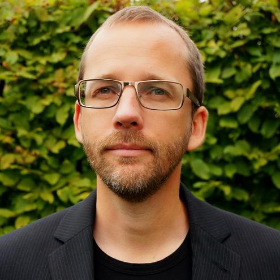
rofessor Oskar Hansson
Name:
Professor Oskar Hansson
Job title:
Professor of Neurology; Senior Consultant in Neurology
Place of work / study:
Area of Research:
Fluid and imaging biomarkers for neurodegenerative disorders
How is your work funded?
My work is funded by several different funding agencies in Sweden, Europe and USA
Tell us a little about yourself:
I love to be in the nature with my family and friends, as well as spending much time listing to my favourite music and reading books. I also really like running longer distances, especially in the woods where my thoughts slow down and I enjoy the moment.
I am also very enthusiastic about my work being a neurologist and researcher. I consider myself very lucky to have so much freedom to do what I am really interested in, and also to be able to work closely together with so many fantastic colleagues and friends. I really want to thank the whole BioFINDER team and my Memory clinic for making life so fun and meaningful!
Tell us a fun fact about yourself:
I have been on the stage with the English rock band Oasis.
Why did you choose to work in dementia?
I have always been very interested by the brain, and I started doing research in experimental neuroscience when I started medical school at the age of 20 years. After finishing my PhD, I did the clinical part of medical school, and then it became clear to me that dementia disorders were largely ignored by by both the society and health care, even these diseases they have devastating effects on the affected individuals and their loved ones. I therefore decided to start working on biomarkers for early detection of neurodegenerative diseases like Alzheimer’s disease. Already 20 years ago it was very clear that we needed to be able to identify these diseases before widespread neurodegeneration and disabling symptoms have already developed. At these early disease stages we are more likely to substantially slow down or even stop the disease progression by different types of interventions.
What single piece of advice would you give to an early career researcher?
Do what you are interested in! Becoming a successful research group leader is hard work, and should be driven by intrinsic, and not extrinsic, motivation.
What book are you reading right now? Would you recommend it?
“Fundamentals: Ten Keys to Reality” [2] by Nobel laureate Frank Wilczek. I can definitely recommend it to anyone curious of the true nature of our reality. When I was very young I wanted to become a physicist and not a medical doctor, and I am still very fascinated by quantum mechanics.